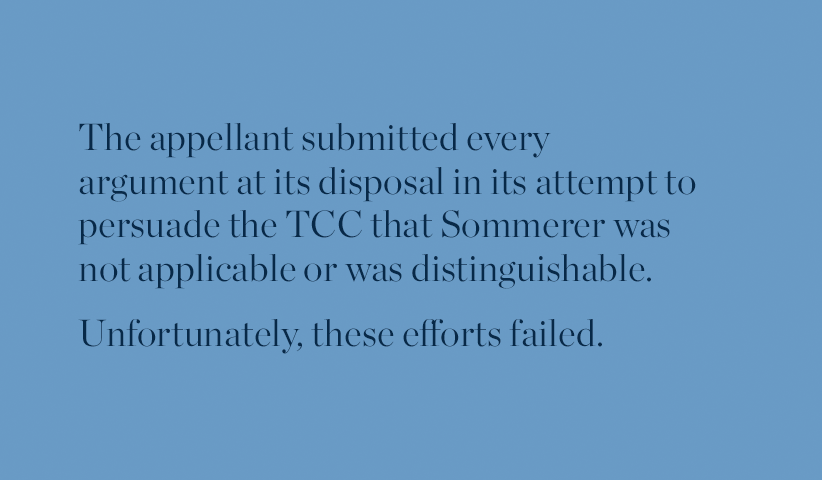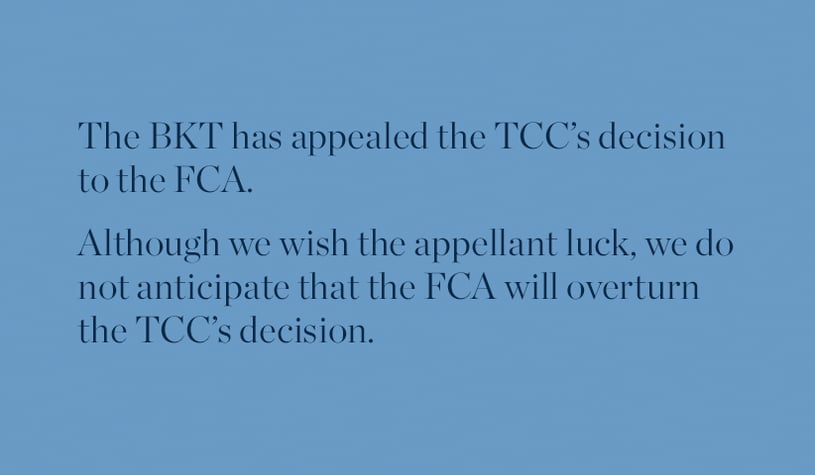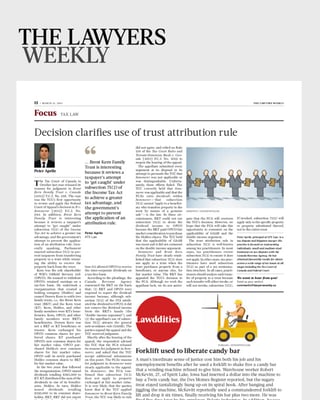
The Tax Court of Canada in October last year released its reasons for judgment in Brent Kern Family Trust v. Canada [2013] T.C.J. No. 286. The case was the TCC’s first opportunity to review and apply the Federal Court of Appeal’s decision in R v. Sommerer [2012] F.C.J. No. 943. In addition, Brent Kern Family Trust is interesting because it reviews a taxpayer’s attempt to “get caught” under subsection 75(2) of the Income Tax Act to achieve a greater tax advantage, and the government’s attempt to prevent the application of an attribution rule. Generally speaking, Parliament enacted subsection 75(2) to prevent taxpayers from transferring property to a trust while retaining the ability to receive the property back from the trust.
Kern was the sole shareholder of Wilf ’s Oilfield Services Ltd. (OPCO). He wanted to withdraw OPCO’s retained earnings on a tax-free basis. He undertook a reorganization that created a holding company (Holdco) and caused Doreen Kern to settle two family trusts, i.e., the Brent Kern trust (BKT) and the Kern trust (KT). Kern, Holdco, and other family members were KT’s beneficiaries. Kern, OPCO, and other family members were BKT’s beneficiaries. Doreen Kern was not a BKT or KT beneficiary or trustee. Kern exchanged his OPCO common shares for preferred shares. KT purchased OPCO’s new common shares for fair market value. OPCO purchased Holdco’s new common shares for fair market value. OPCO sold its newly purchased Holdco common shares to BKT for fair market value.
In the two years that followed the reorganization, OPCO issued dividends totalling $395,000 to KT. KT distributed the sum of the dividends to one of its beneficiaries, Holdco. In turn, Holdco issued dividends totalling $395,000 to its common shareholder, BKT. BKT did not report the dividends on the basis that 75(2) applied, because it acquired the Holdco shares from one of its beneficiaries, OPCO. BKT argued that — in light of OPCO’s transfer of the Holdco shares to BKT and OPCO’s potential to receive the Holdco shares back from BKT as a beneficiary — subsection 75(2) of the act applied to attribute the dividends to OPCO. Further, section 112 allowed OPCO to receive the inter-corporate dividends on a tax-free basis.

According to the pleadings, the Canada Revenue Agency reassessed the BKT on the basis that: (1) BKT and OPCO were required to report the dividend income because, although subsection 75(2) of the ITA attributed the dividend to OPCO, it did not remove the dividend income from the BKT’s hands (the “double income argument”); and (2) the appellant’s use of subsection 75(2) attracts the general anti-avoidance rule (GAAR). The parties argued the appeal and the TCC reserved judgment.
Shortly after the hearing of the appeal, the respondent advised the TCC that the FCA released its reasons for judgment in Sommerer, and asked that the TCC accept additional submissions on this point. The FCA’s reasons for judgment in Sommerer were clearly applicable to the appeal. In Sommerer, the FCA confirmed that subsection 75(2) does not apply to property exchanged at fair market value. It is very likely that the parties knew that if the TCC applied Sommerer to Brent Kern Family Trust, the TCC was likely to rule in the government’s favour.
The appellant argued that the respondent was prohibited from relying on Sommerer to argue that subsection 75(2) did not apply to attribute the dividends to OPCO on the basis that the respondent’s pleadings, factual assumptions, and the parties’ statement of agreed facts took the opposite position. The TCC did not agree, and relied on Rule 138 of the Tax Court Rules and Toronto-Dominion Bank v. Canada [2011] F.C.J. No. 1029 to reopen the hearing of the appeal.
The appellant submitted every argument at its disposal in its attempt to persuade the TCC that Sommerer was not applicable or was distinguishable. Unfortunately, these efforts failed. The TCC correctly held that Sommerer was applicable and that the FCA’s ratio decidendi within Sommerer — that subsection 75(2) cannot “apply to a beneficiary who transfers property to the trust by means of a genuine sale” — is the law. In these circumstances, BKT could not use subsection 75(2) to deem the dividend income to OPCO because the BKT paid OPCO fair market consideration to purchase the Holdco shares. The TCC held that the applicability of GAAR was moot and it did not comment on the double income argument.

Sommerer and Brent Kern Family Trust have clearly established that subsection 75(2) does not apply to a trust when the trust purchases property from a beneficiary, or anyone else, for fair market value. The BKT has appealed the TCC’s decision to the FCA. Although we wish the appellant luck, we do not anticipate that the FCA will overturn the TCC’s decision. However, we hope that the FCA will take this opportunity to comment on the applicability of GAAR and the double income argument.
The trust attribution rule in subsection 75(2) is well-known among tax practitioners. In most cases, tax practitioners review subsection 75(2) to ensure it does not apply. In other cases, tax practitioners have used subsection 75(2) as part of a tax minimization structure. In all cases, practitioners should analyze each transfer of property to a trust because each transfer will either invoke, or will not invoke, subsection 75(2). If invoked, subsection 75(2) will apply only to the specific property or property substituted thereof, not to the entire trust.

.jpg?width=120&name=Counter%20Tax%20Litigators%20Logo%20Stacked%20(MidnightBlue%20on%20White).jpg)




.png?width=499&height=299&name=CRA%20Disputes_Management_Board_First_Conversation%20(Sphere%201%20Purple).png)


.png?width=400&height=400&name=CT-How_Can_We_Help-22_july_NewGraphic_b(small).png)